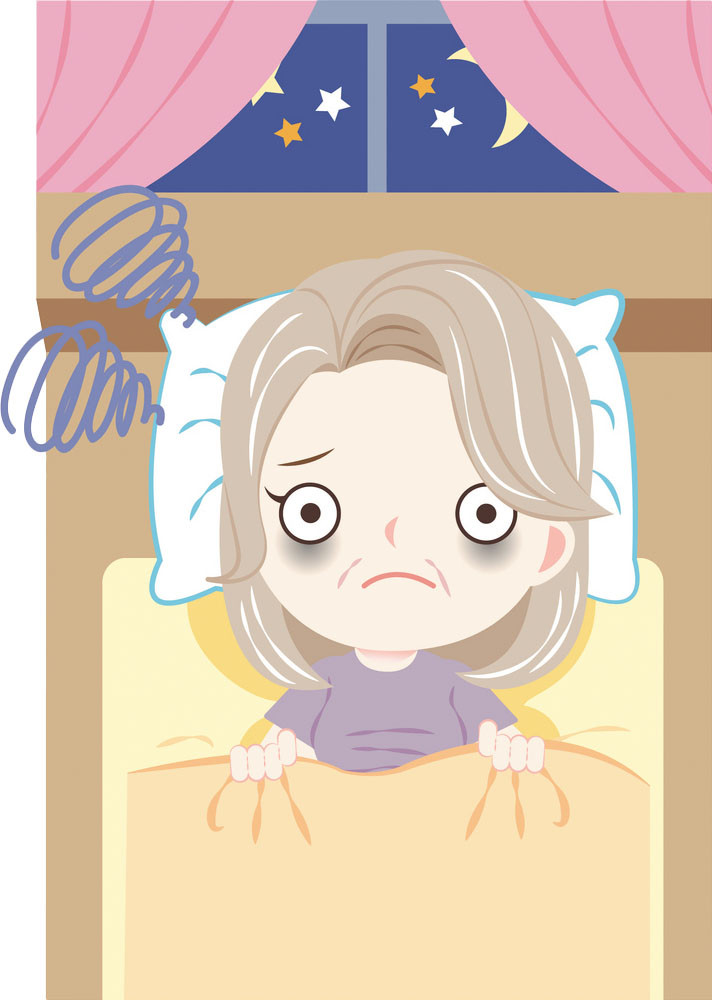
Counting steps is good — is combining steps and heart rate better?

Appendix pain: Could it be appendicitis?

Can saw palmetto treat an enlarged prostate?

How does Ozempic work? Understanding GLP-1s for diabetes, weight loss, and beyond

Zinc: What it does for the body, and the best food sources

Respiratory health harms often follow flooding: Taking these steps can help

Tips to leverage neuroplasticity to maintain cognitive fitness as you age

Can white noise really help you sleep better?

Celiac disease: Exploring four myths

What is prostatitis and how is it treated?
Staying Healthy Archive
Articles
New exercise guidelines suggest older adults try a variety of activities
In the journals
Image: © kali9/Getty Images
For the first time in 10 years, the U.S. government has updated its guidelines for regular physical activity. The guidelines, published in the Nov. 20, 2018, issue of JAMA, still suggest adults get at least 150 to 300 minutes each week of moderate-intensity physical activity, and the more you can do, the better. Examples of moderate-intensity activities include brisk walking, swimming and cycling.
What is new are specific suggestions for certain age groups. For adults ages 65 and older, the report recommends their allotted minutes include multicomponent activities that offer balance training, aerobic exercise, and muscle strengthening, all of which can help older adults reduce their risk of falls. They noted that many recreational activities like dancing, yoga, tai chi, gardening, or sports often incorporate the multiple types of activity you need.
Fish oil and vitamin D supplements might offer some health benefits
In the journals
Vitamin D and omega-3 fatty acid supplements have had mixed results when it comes to preventing heart attacks, strokes, and cancer in people who have already developed these problems or are at high risk for them. Yet a new study published online Nov. 10, 2018, by The New England Journal of Medicine found they may actually prevent these conditions among people who have never had these problems before.
Researchers recruited almost 26,000 people, ages 50 and older, who had no history of heart disease or cancer. The participants were divided into four groups. People in one group were given daily doses of 2,000 international units of vitamin D (an amount found to be linked to lower disease risk in observational studies) and 1 gram of a drug called Lovaza, which contained 840 milligrams of omega-3s (two to four times the amount in two servings of fish per week). The second group took vitamin D and a placebo, the third group took the omega-3s and a placebo, and the final group took two placebos. After more than five years, the researchers found that those given omega-3s were 28% less likely to suffer a heart attack compared with those given a placebo. Those who ate fewer servings of fish (less than the average of 1.5 servings per week) appeared to have a greater benefit from the additional omega-3s while those with higher fish intake had minimal benefit.
Are workouts safe after a heart attack?
Ask the doctors
Q. My partner recently had a heart attack. The doctor recommended exercise, but I wonder if it's better to take it easy. I feel like exercise might be dangerous or even cause another heart attack. Is exercising too risky?
A. As counterintuitive as it might seem, exercise is good medicine for heart attack survivors. Provided the doctor gives the green light, about two-and-a-half hours of moderate-intensity exercise each week can be beneficial — this is the amount recommended by the American Heart Association. Exercise can start as soon as the doctor gives the okay.
Mediterranean diet works by adding up small improvements
Over time, eating a diet high in vegetables, fruits, whole grains, and olive oil can reduce heart and blood vessel disease risks.
Image: © inaquim/Getty Images
Eating a Mediterranean-type diet won't suddenly and dramatically improve your cholesterol, magically slash your blood pressure, or help you drop 20 pounds overnight.
But if you stick with it over time, it can potentially cut your risk of heart and blood vessel diseases by as much as 25%, according to a study published online Dec. 7, 2018, by JAMA Network Open. This overall improvement may be due to the cumulative effect of numerous small positive changes that occur in the body as a result of the diet — most notably, a drop in chronic inflammation, a known risk factor for heart disease.
Stretch your exercise plan beyond weights and cardio
Including stretching exercises in your workout regimen is essential to maintaining good posture and balance.
Image: © kali9/Getty Images
Whether you're an avid exerciser or spend most of your time sitting in front of a computer, stretching should be part of your weekly routine. While this may conjure images of complicated twists and contortions, the type of stretching you need may be as simple as taking periodic work breaks to lift your arms above your head and to perform some other easy movements.
"Stretching doesn't have to be a particular program. It's just getting out of the posture you spend a lot of time in, taking some deep breaths, and moving your joints through their full range," says Dr. Lauren Elson, an instructor in physical medicine and rehabilitation at Harvard Medical School.
Study: Light pollution may trigger insomnia
Research we're watching
High exposure to bright, artificial outdoor lights during the night may result in sleepless nights for older adults. The more of this so-called light pollution that people were exposed to at night, the more they seemed to turn to medication to help them sleep, according to a study published in the Nov. 15, 2018, Journal of Clinical Sleep Medicine. People in brightly lit areas, as judged by satellite data, also seemed to take those drugs for longer and took higher doses than people who weren't exposed to nighttime light.
To come to their conclusions, the researchers looked at data on more than 50,000 adults ages 60 or older from the National Health Insurance Service–National Sample Cohort, a database of information collected on people who participated in health screenings between 2002 and 2013 in South Korea. Researchers compared the people's nighttime light exposure and their use of two sleep drugs, zolpidem (Ambien) and triazolam (Halcion).
FDA: Certain antibiotics may bring serious risks
Research we're watching
In December 2018, the FDA issued a warning about certain antibiotics known as fluoroquinolones, a drug class that includes ciprofloxacin (Cipro) and levofloxacin (Levaquin). The drugs are associated with rare ruptures or tears in the body's main artery, the aorta, which can cause serious, sometimes fatal bleeding. Cases were reported in people taking these antibiotics orally or by injection.
Because of this risk, the FDA is advising doctors to try to avoid prescribing these antibiotics to people who are at higher risk for problems with the aorta, unless there are no other antibiotics available to treat the infection. This includes people who have high blood pressure, certain genetic disorders (such as Marfan syndrome and Ehlers-Danlos syndrome), or a history of arterial blockages or aneurysms.
Long-term exercise programs linked to reduced fall risk
News briefs
Image: © Vesnaandjic/Getty Images
You probably know that exercise can help you maintain your balance and prevent falls, which are among the top causes of injury and death among older adults. But if you're worried that being active will wind up increasing your risk of getting hurt, a large study may put your fears to rest. The research, published online Dec. 28, 2018, by JAMA Internal Medicine, analyzed 40 randomized trials that included about 22,000 older adults. People who exercised for one year or more had a 12% relative reduction in falls and a 26% relative reduction in falls with injury, compared with people who didn't exercise. Also: exercising long-term was not associated with an increase in the rate of hospitalization or death (though it wasn't linked to a reduction, either). Researchers didn't determine which kind of exercise was best. However, the most benefits were seen when people exercised three times per week, 50 minutes per session, in programs that included several components, such as balance exercises, strength training for the lower limbs, and aerobic exercise (the kind that gets your heart and lungs pumping, like brisk walking).
Keep your advance directive safe but accessible
Many people understandably want to keep their living will and health care power of attorney forms in a secure place. But if these documents are locked away in a safe deposit box, they won't be much help if you're unexpectedly hospitalized. Here are some people who should have copies of your advance directives and some other places where they should be filed.
Your health care agent and any alternative agents. All should have a copy of your health care power of attorney (and your living will, if you have one). In an emergency, your agent may need to fax the documents to doctors or a hospital.
Your doctor. A copy of your advance directives should be in your file and medical record.
Your hospital chart. If you are in the hospital, ask to have a copy of your advance directives put in your chart. (Your health care agent or a family member should do so if you are unable to do it.)
A safe spot in your home. File the original documents in a secure place in your home — and tell your agent, family, and friends where you put them. Hospitals may request an original, so it's important that someone can find the documents when necessary. The National Hospice and Palliative Care Organization suggests noting on all copies of the documents where the originals are stored.
Carry it with you. Put a card with your health care agent's name and contact information in your wallet or purse. Also note on the card where you keep the original and additional copies of your directives.
If you have a do not resuscitate order (DNR), remember that you or your health care agent may be required to produce a signed form, or you may have to wear a special bracelet identifying that decision. If a lawyer drew up your advance directives, ask whether he or she will keep a copy, and for how long.

Counting steps is good — is combining steps and heart rate better?

Appendix pain: Could it be appendicitis?

Can saw palmetto treat an enlarged prostate?

How does Ozempic work? Understanding GLP-1s for diabetes, weight loss, and beyond

Zinc: What it does for the body, and the best food sources

Respiratory health harms often follow flooding: Taking these steps can help

Tips to leverage neuroplasticity to maintain cognitive fitness as you age

Can white noise really help you sleep better?

Celiac disease: Exploring four myths

What is prostatitis and how is it treated?
Free Healthbeat Signup
Get the latest in health news delivered to your inbox!
Sign Up











